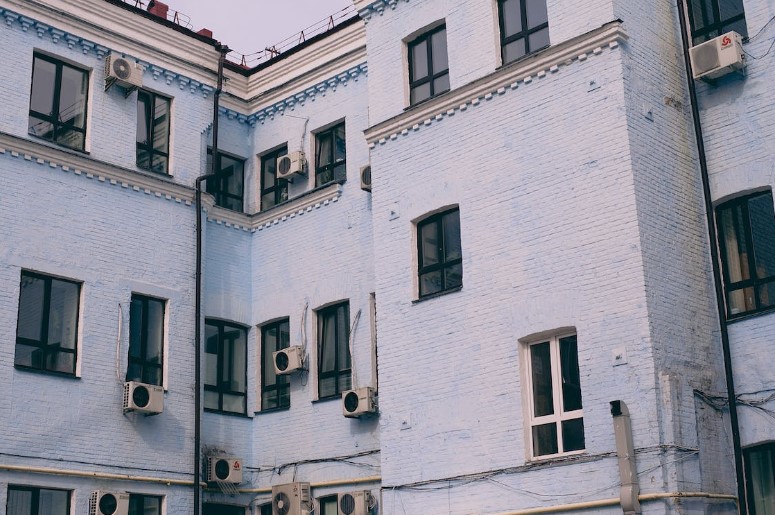
The summer heat can be brutal, especially in San Antonio. This is why you need a professional ac repair in San Antonio contractor. It’s almost impossible to find a house, apartment, or office that doesn’t have some sort of air conditioning unit. Even if you don’t own an A/C unit, you likely have colleagues who will let you cool off in their offices when the heat gets to be too much on your own. These units are not perfect and will require maintenance as well as repairs from time to time. Here are some common A/C repair issues we see all the time, along with tips on how to remedy them quickly and easily.
A/C Doesn’t Turn On
One of the major issues we come across as Air Conditioning is that the unit doesn’t turn on at all. There are many reasons why an A/C unit would fail to turn on, but the easiest way to find the underlying cause is to follow the path of the electricity from the breaker box to the A/C unit or call an AC maintenance San Antonio contractor. This means you need to find the breaker that should be supplying power to the A/C unit, confirm that it is turned on, and then trace the wires back to the A/C unit. Here are the most common reasons we see for why A/C units don’t turn on: – The circuit breakers are tripped. This is usually caused by a power surge caused by a thunderstorm or another source of electricity. A circuit breaker is designed to trip when overloaded to protect the rest of the circuit, but it is also designed to reset automatically. If your circuit breaker trips and doesn’t reset, you’ll need to reset it manually. – The circuit breaker is broken. This can happen over time or because of an electrical problem. The best way to troubleshoot this issue is to replace the breaker with a new one and see if the A/C unit now turns on. – A wiring problem exists between the breaker box and the A/C unit. This could be as simple as miswiring or a loose connection in the wiring. – A wiring problem exists between the A/C unit and the thermostat. This could be as simple as miswiring or a loose connection in the wiring.
No Cooling, Only Air From A/C
If your A/C unit is only producing air and no cooling whatsoever, it’s likely a clogged condenser issue. The condenser is an outdoor component that has cooling fins designed to pull warm air from the inside of the house and use it to remove heat and lower the temperature of the air. A clogged condenser is a common A/C repair issue that occurs when leaves and other debris block the fins and prevent them from cooling properly. Ideally, you should clean your condenser at least once every spring. If you don’t have time for that, you can also hire All Service Heating and Air to clean it for you.
A/C Produces Too Much Cold Air
If your A/C unit is producing too much cold air, you may need air condition repair San Antonio contractor. This complaint is common, especially in the spring when the weather is still cool but the sun is starting to warm up the air. When your air conditioner is blowing cooler air than you would like, you can fix the problem by adjusting the temperature. When your temperature is set too low and your unit is still blowing cooler air than you would like, it might be set to “auto.” Auto mode will adjust your temperature according to the outside conditions. When the weather is warm, the temperature outside is likely much cooler than you would like inside. You can adjust your temperature to “on,” and it will remain at that temperature until you change it again.
Condenser Produces Too Much Noise
If your condenser is making too much noise, it could be due to a number of different factors. It’s best to hire a professional to check this out and find out what is causing the excessive noise. There are several potential issues that could lead to excessive noise from the outdoor condenser: – A loose mounting bracket could cause vibrations that are transferred to the condenser fins. – An obstructed or dirty condenser could trap warm air and cause it to overheat and make noise. – An electrical problem could cause a short in the wiring. – Worn-out or broken fins could cause excessive vibration and make noise.
Ductwork Produces Too Much Noise
If your ductwork is making too much noise, it could be due to a number of different factors. It’s best to hire a professional to check this out and find out what is causing the excessive noise. There are several potential issues that could cause excessive noise from your ductwork: – Dirty or clogged ductwork could be restricting airflow, causing your system to work harder than necessary. – An obstruction in your ductwork such as lint or leaves could be causing your system to work harder than necessary. – A duct that is too small for your system could be restricting airflow, causing your system to work harder than necessary. – Your ductwork could have a vibration that is causing it to make noise.
Confirm Diagnosis With Professional Repair Person
Before you call a repair person, you need to make sure you have diagnosed the problem correctly. This may sound silly but there are many times when homeowners attempt to diagnose the problem and end up misdiagnosing it. This usually results in unnecessary repairs and a huge cost. To avoid this, make sure you know exactly what is causing the problem and how to fix it. If you don’t know how to fix the problem yourself, find an online forum where the problem has been discussed. Once you know what the problem is, you can properly explain it to the repair person. They will then be able to quickly and easily diagnose the issue and recommend a course of action.
Conclusion
The summer heat can be brutal. It’s almost impossible to find a house, apartment, or office that doesn’t have some sort of air conditioning unit. Even if you don’t own an A/C unit, you likely have colleagues who will let you cool off in their offices when the heat gets to be too much on your own. These units are not perfect and will require maintenance as well as repairs from time to time. Here are three common A/C repair issues we see all the time, along with tips on how to remedy them quickly and easily. Hopefully, these tips will help you to identify and fix these common repairs yourself so you don’t have to pay an expensive repairman every time something goes wrong.
